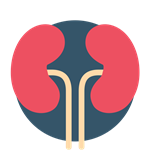The information on this website is intended only to provide knowledge of cystinosis disease health topics. This information should not be used in place of advice from your GP or other healthcare professional. If in doubt, please contact your doctor for advice. This website has been produced by Chiesi Farmaceutici. The website has been developed in accordance with industry and legal standards to provide information for healthcare professionals and patients about cystinosis disease health topics. Chiesi Farmaceutici makes every reasonable effort to include accurate and current information. However, the information provided in this website is not exhaustive.
Acknowledgements
Chiesi Farmaceutici extend special thanks to Cystinosis Network Europe (CNE), at http://cystinosis-europe.eu for their insightful review of the contents.
CNE received no honorarium or payment for this review.
ALL_21_071 | November 2022
©2024 CHIESI Farmaceutici S.p.A. – VAT 01513360345, Company's Capital: Euro 75.000.000, Companies Register Office – Parma N.15739, REA: 159271





